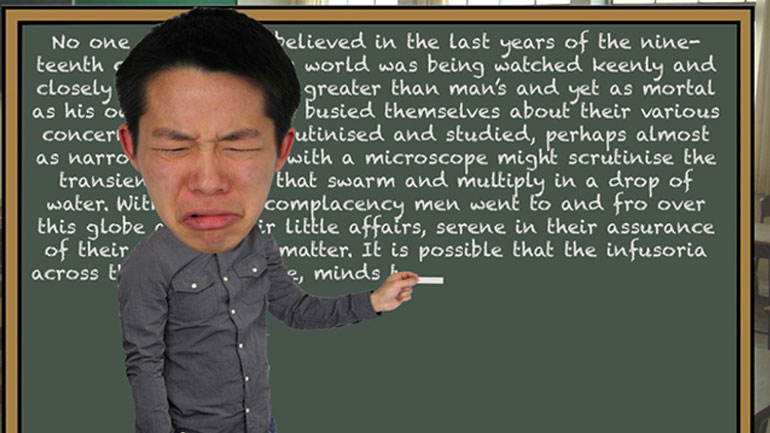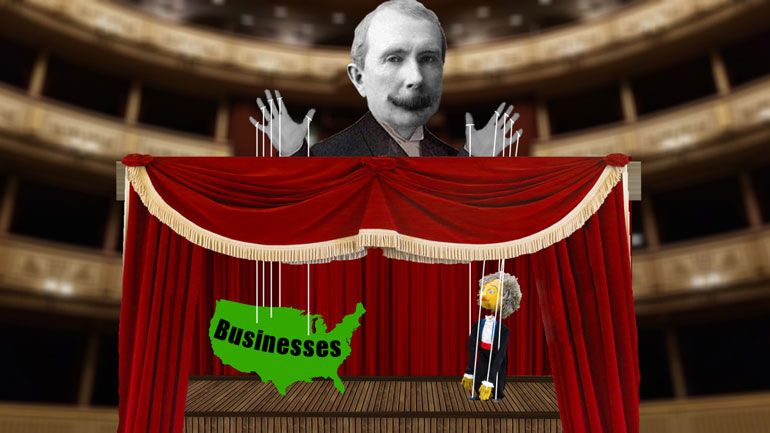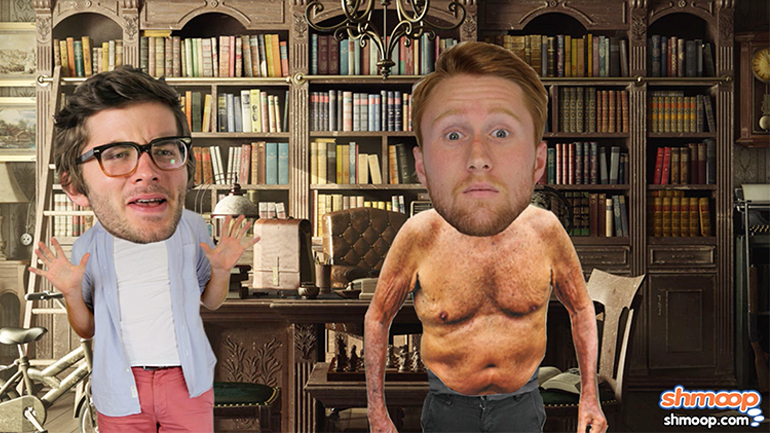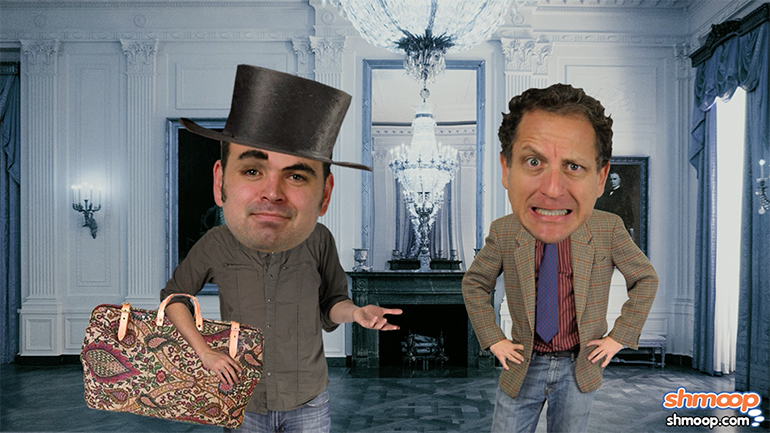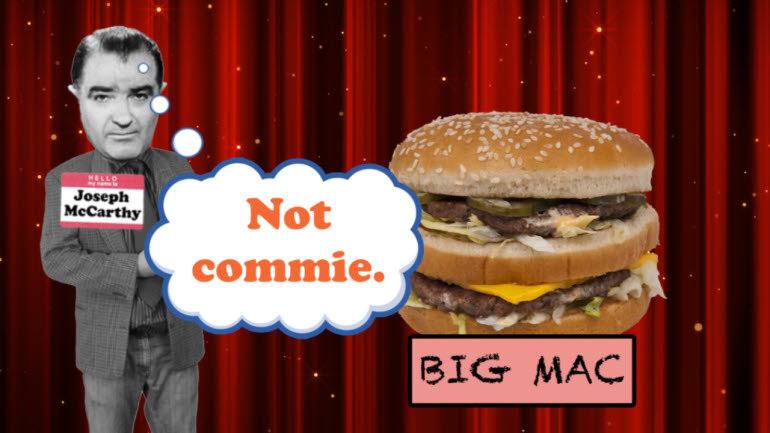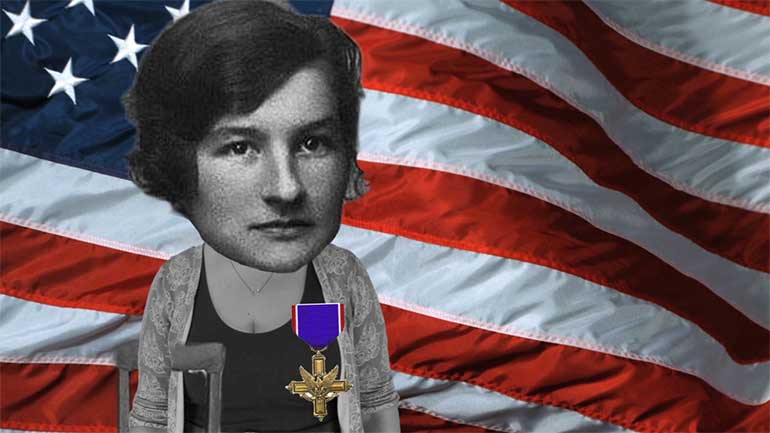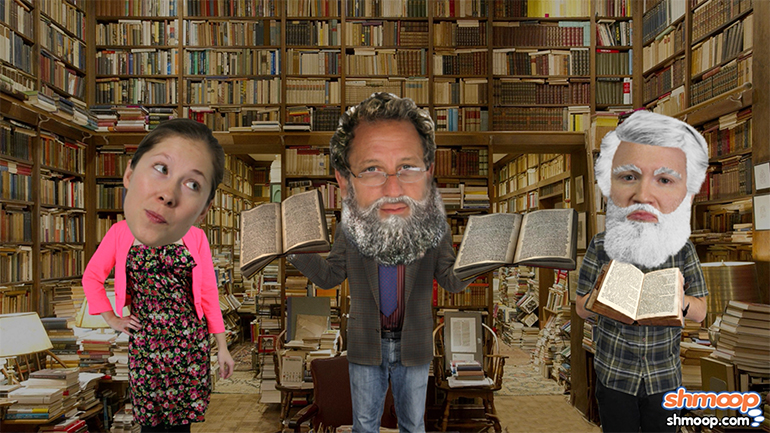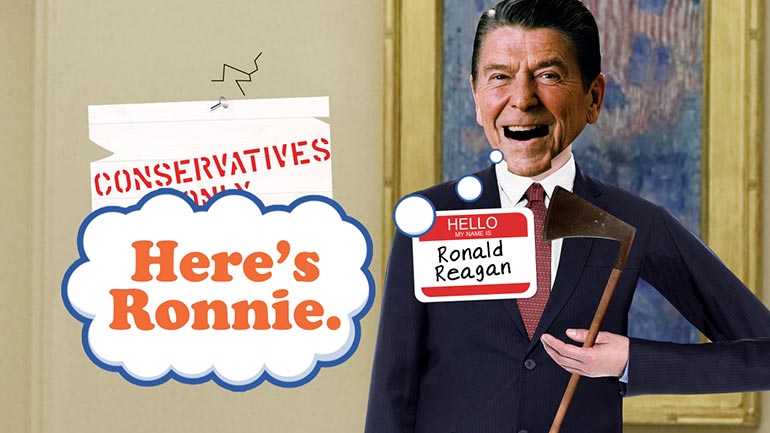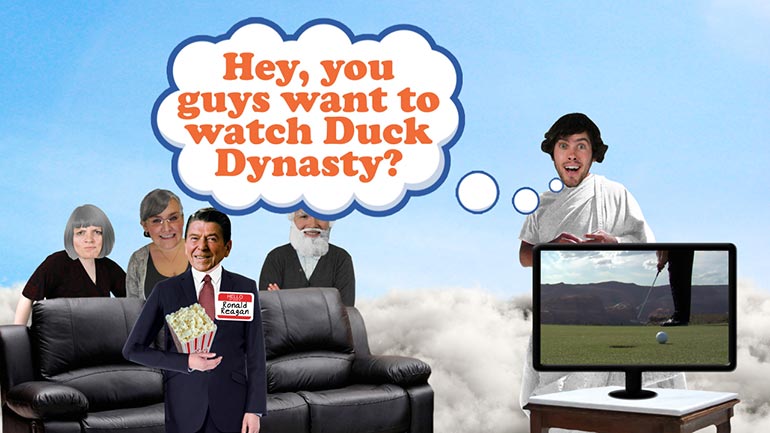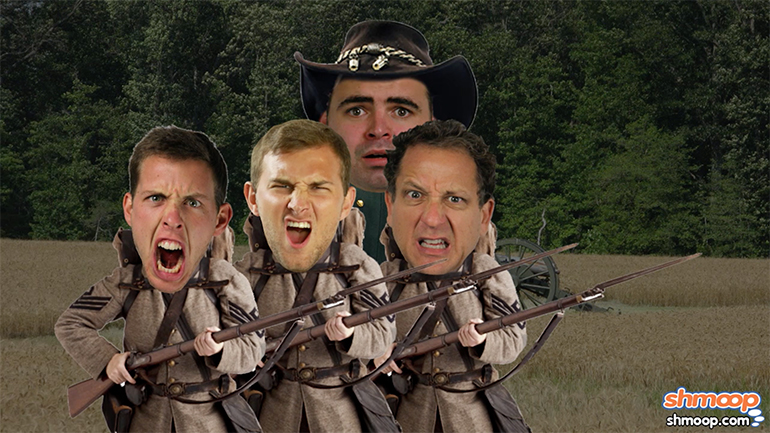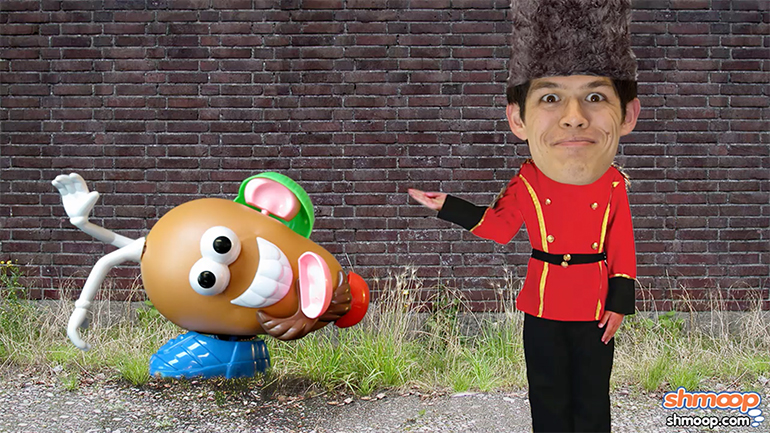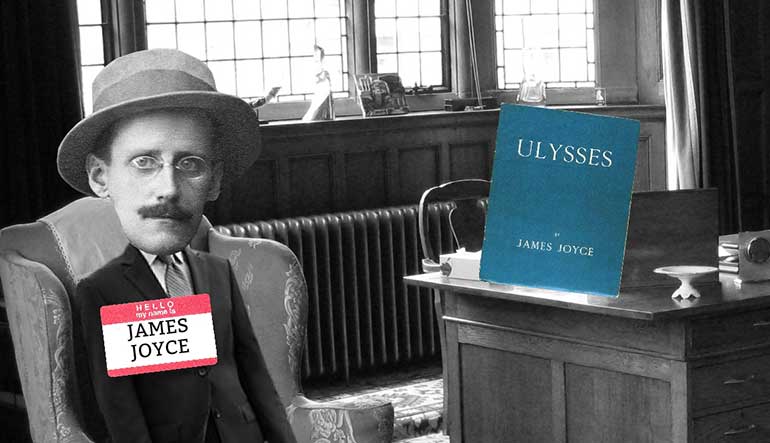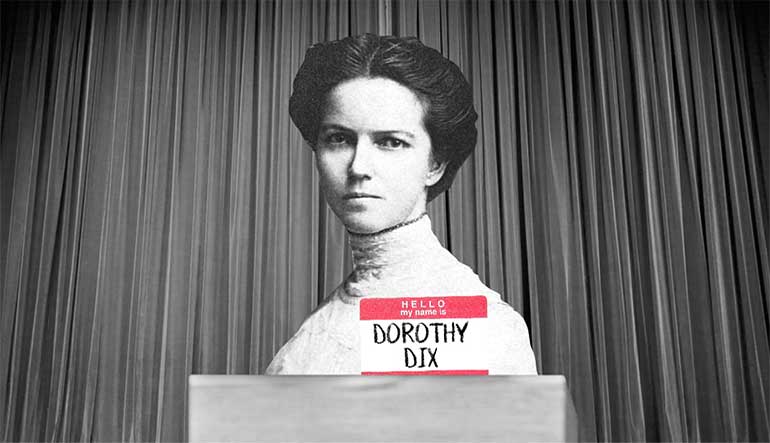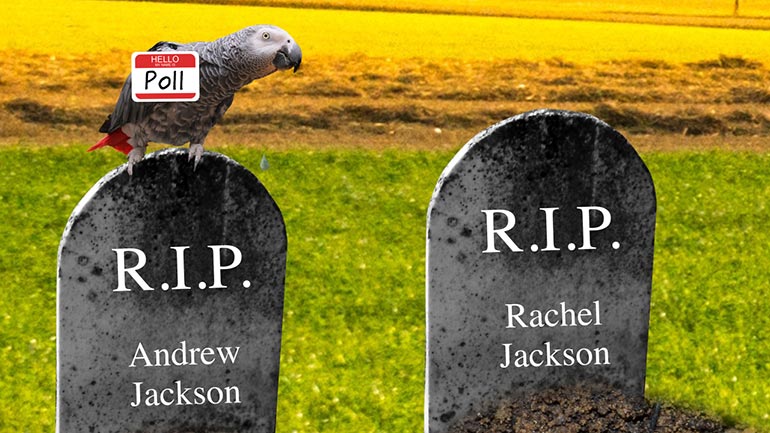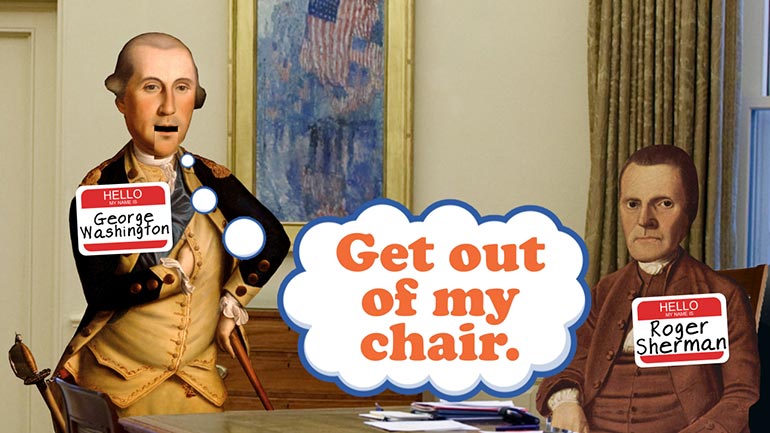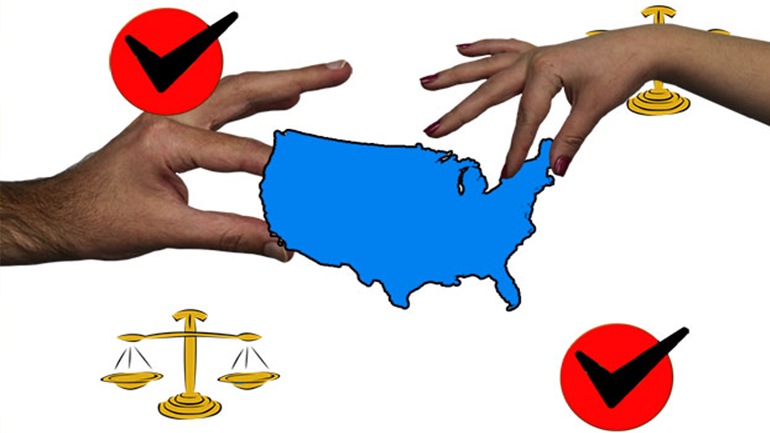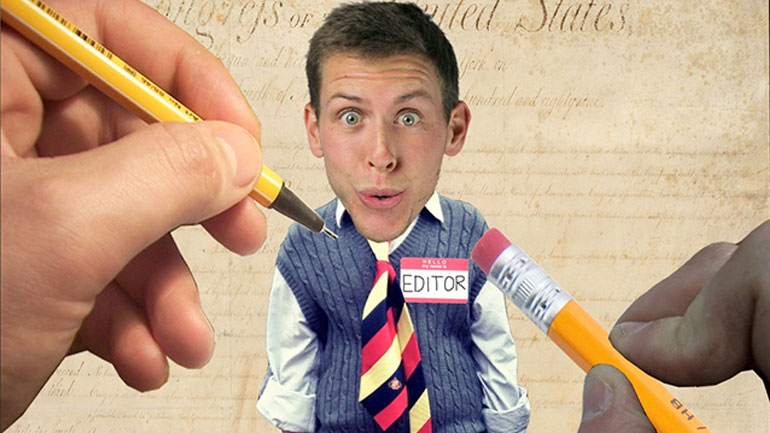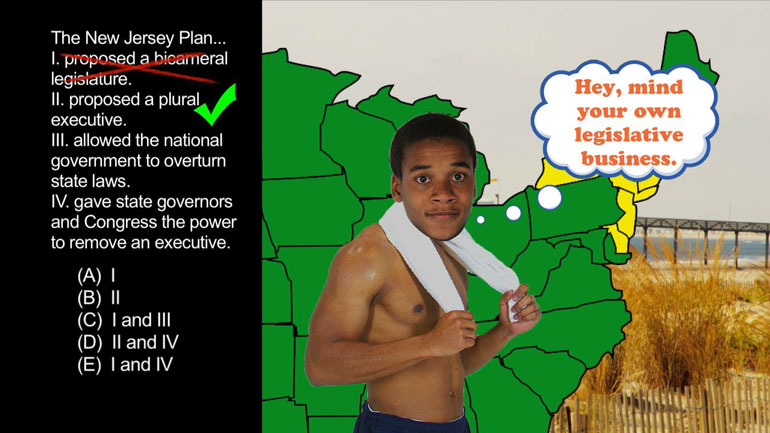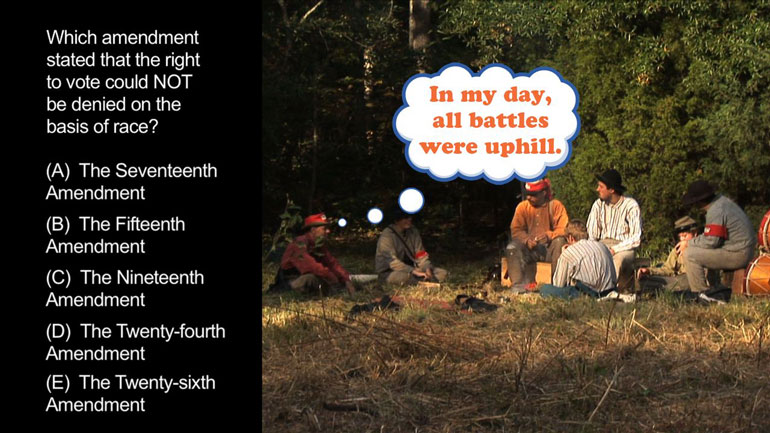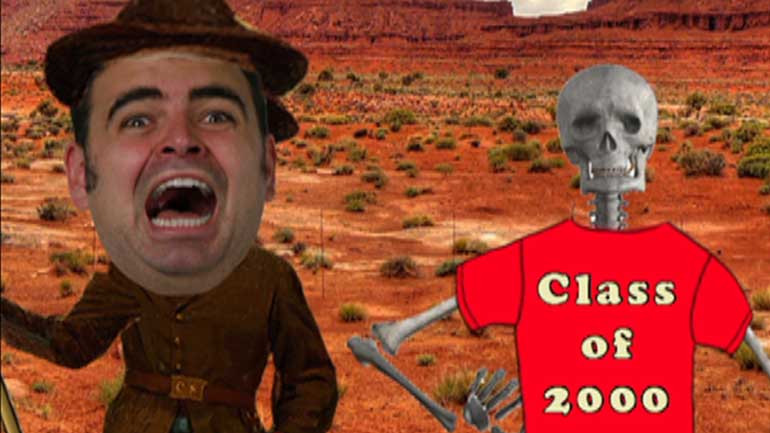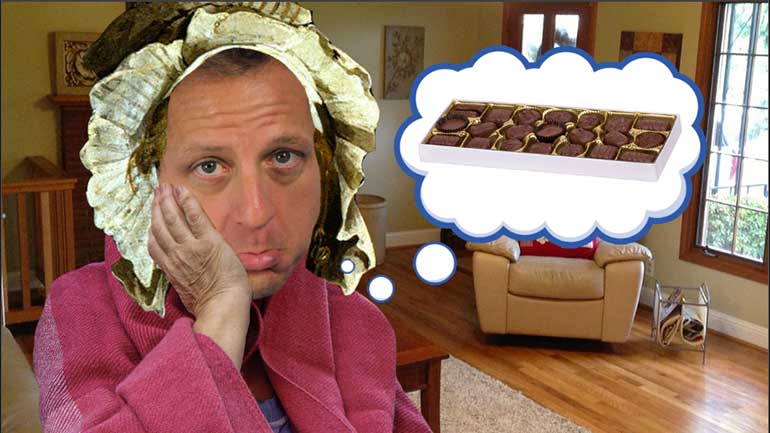ShmoopTube
Where Monty Python meets your 10th grade teacher.
Search Thousands of Shmoop Videos
Social Studies Videos 2409 videos
GED Social Studies 1.1 Civics and Government
Ever heard of a "living document"? They eat and breathe just like the rest of us! They even walk around on their own two legs. Okay, fine—maybe t...
U.S. History 1492-1877 5: The Missouri Compromise 173 Views
Share It!
Description:
Today we'll learn about how the Missouri Compromise, in part, led to Captain America and Iron Man engaging in epic an epic battle for...wait a second. Wrong civil war. It just led up to a war between the North and the South.
Transcript
- 00:03
Historians have devoted their lives to analyzing
- 00:06
all of the many causes of the Civil War.
- 00:10
We don't have the time to go into all of them, because…
- 00:12
well, that Netflix isn't going to binge watch itself.
- 00:16
Seriously, though...
Full Transcript
- 00:17
It's way too complicated for a short video, but we can zero in on some of
- 00:19
the big events that leant a helping hand in ripping the country apart.
- 00:23
In this edition, we'll take a look at the Missouri Compromise.
- 00:27
Here's the scoop.
- 00:28
In 1819, American settlers in Missouri were like…
- 00:31
"Hey, Congress, how 'bout you make us a state?"
- 00:34
Trouble was that many of the people in Missouri had migrated from
- 00:38
the South, bringing their slaves with them.
- 00:40
The region's slave population topped ten thousand.
- 00:44
So it was pretty clear that the Missourians would also say,
- 00:47
"Make that a slave state, please."
- 00:49
At the time, slave and free states were equally divided, 50/50.
- 00:53
So admitting Missouri into the Union as a slave state
- 00:56
would give slave states a majority in the Senate, and the North started freaking out.
- 01:02
New York Congressman James Tallmadge and many
- 01:05
northern representatives didn't want to see slavery spread into the West.
- 01:09
So they pitched that statehood be granted under the condition that slavery
- 01:13
would be gradually abolished within Missouri's borders.
- 01:17
No new slaves would be allowed to enter, and the children of all
- 01:20
those already in Missouri would be freed at the age of twenty-five.
- 01:25
Wow, and all we have to look forward to when we turn twenty-five
- 01:27
is reduced car rental costs.Yeah, seems like we've got the better end of that deal.
- 01:32
Well, this type of slavery killing policy was called gradual emancipation.
- 01:37
It'd been working like a charm since the Revolution in Northern states like
- 01:40
Connecticut, Rhode Island, Pennsylvania, New York, and New Jersey.
- 01:43
This, of course, is what made Southern representatives say,
- 01:47
"Who do you think you're kiddin'?"
- 01:49
They knew that after 25 years, free states would have the edge in the Senate.
- 01:53
So Tallmadge's proposition was dead in the water.
- 01:56
One year later, Illinois Senator Jesse Thomas designed a compromise
- 01:59
that he hoped would make everybody happy. ...Except the slaves.
- 02:03
Missouri would be allowed to be a slave state if it felt like it…which it did.
- 02:07
But to offset the new slave state, Maine would be admitted to the Union as a free state.
- 02:12
On top of that, slavery would not be allowed in all remaining territory
- 02:16
north of the 36º30' parallel, the southern border of Missouri,
- 02:21
except, of course, within Missouri itself.
- 02:25
Congress decided that was probably the best idea anybody was going to come
- 02:28
up with, and voted to adopt Thomas's resolution as the Missouri Compromise.
- 02:33
The question of the legality of slavery had been successfully postponed yet
- 02:37
again, but of course it wouldn't last.
- 02:39
Northern powers opposed to slavery wanted the practice abolished altogether.
- 02:43
And southern slave owners wanted it expanded like our waist lines during the holidays.
- 02:48
Speaking of lines…
- 02:49
This line in the sand between the free North and slave-y South may not have been the best idea.
- 02:54
Yeah, it did lead to peace for a little while.
- 02:57
But in the long run, it beefed up regional beefs.
- 03:00
It was the North versus the South, not the United States.
- 03:03
Slavery formed the core of the debate, but there was another serious
- 03:06
issue at stake: the scope of federal power.
- 03:09
Congressman Tallmadge's proposal would have meant that the
- 03:12
federal government could place conditions on the creation of state constitutions.
- 03:17
That's the Feds telling the hippies in California what to do. Not gonna happen.
- 03:22
Did they really have the authority to do that?
- 03:24
Well, the Missouri Compromise also left this key question unanswered.
- 03:28
And as we all know from our training in standardized tests, even if we
- 03:31
don't know the answer, sometimes it's best to try and bubble in something.
- 03:36
We usually go for answer B.
Related Videos
GED Social Studies 1.1 Civics and Government
When you're about to marry the love of your life, not many things could stop you. However, finding out that your future hubby is keeping his crazy...
Here at Shmoop, we work for kids, not just the bottom line. Founded by David Siminoff and his wife Ellen Siminoff, Shmoop was originally conceived...
ACT Math: Elementary Algebra Drill 4, Problem 5. What is the solution to the problem shown?







